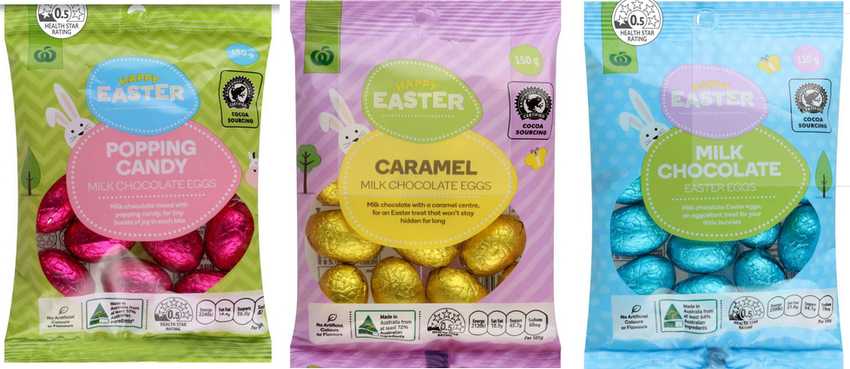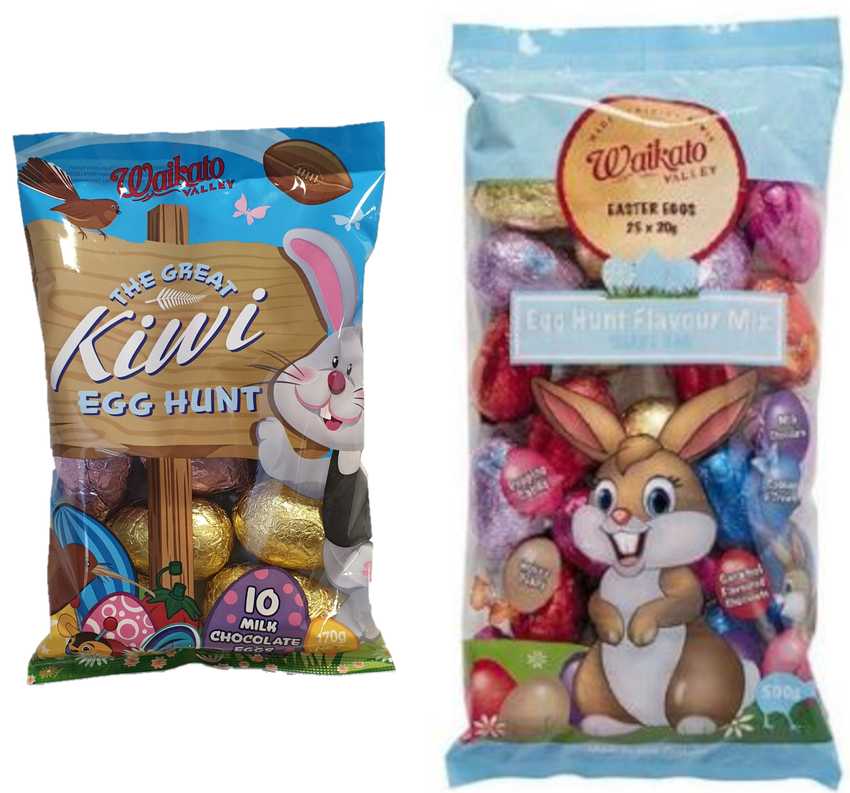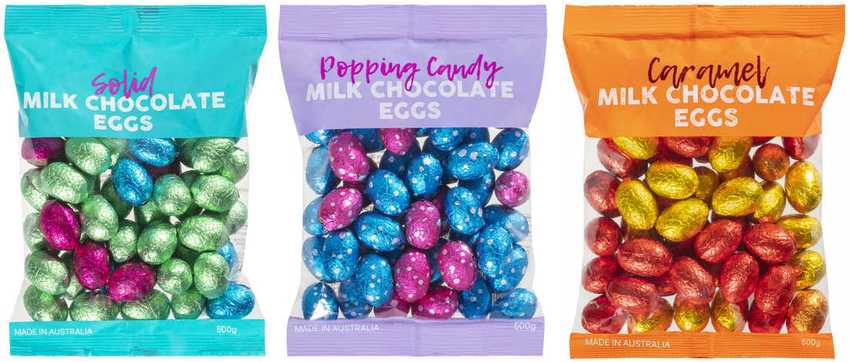We’re in the middle of preparing our recommendations for slave-free Easter chocolate. We’ve been delighted to find the following low-cost options are now available, all certified slave-free through Rainforest Alliance.

New this year, from Countdown, bags of around 12 mini eggs for $3.50. In popping candy, caramel and milk chocolate varieties.

New this year at the Warehouse, are Waikato Valley Chocolates Kiwi egg hunt bags ($5 for 10 small eggs) and their egg hunt flavour mix (30 small eggs in this one).

And Kmart are again selling their $9 500g bags of mini eggs, in popping candy, caramel and milk chocolate.
But why are we excited about that? These are pretty cheap products, so how can they possibly be slave-free? Doesn’t that always have to cost more?
Often yes, but not always, no. And chocolate’s one place where an affordable product can be just as good for vulnerable producers as an expensive one.
How can that be?
Mostly because of how the chocolate supply chain works. When it comes to clothing, there are high risks of forced labour, child labour and severe human rights abuses at every step of the supply chain - from growing and processing the cotton right through to making the final garment. In order to root out those practises, it’s generally necessary to pay more (and do other things that cost money, like monitoring) at every step of the supply chain.
Chocolate’s not like that. There are high risks of human rights abuses, especially child labour, on cocoa farms. But, once the cocoa beans leave the farm, labour abuses in subsequent steps are very rare. That means the only step where higher prices, education campaigns, monitoring etc. is necessary is at the original farm. And that means that the price difference between a product where you can be reasonably confident it made without child labour, and one where you have no idea, can be so small you don’t even notice it.
Fairtrade UK published educational materials a few years back, where they said that a cocoa farmer typically gets only 0.5% of the price of a block of chocolate. Next to nothing, really! But for a particular block that was both organic and Fairtrade certified, that only rose to 4%. Another source estimates that it’s more like 3% going back to the farmer for a typical block, and that increasing that to 6% would result in farmers in Ghana (one of the world’s largest producing countries) receiving a living wage. The two sources don’t quite agree, but both suggest an increase of roughly 3% in the final price would be enough to pay a fair wage to the farmers. That’s the kind of increase the end-consumer would hardly notice, even though it would make the world of difference to the people farming the cocoa.
And all that means that yes, we believe affordable chocolate can be ethical! Indeed, when you examine the brands in our cocoa list (which includes everything from affordable to high-end brands) you’ll find many of them sell at very much the same price as the uncertified products they’re competing with.
Another factor that’s important here is the other benefits that come with certification. As well as certified cocoa selling for more than market averages (generally quite a bit more for Fairtrade, less so for Rainforest Alliance/UTZ), certification often comes with other resources that improve farmer livelihoods. Things like supplying them with seedlings that have better genetics, or education in better farming methods. One recent study from Indonesia found that farms certified through UTZ were producing roughly 60% more cocoa per hectare than their uncertified neighbours, leading to farmers having incomes 50% higher despite their farms being more than 10% smaller. That higher income means the parents are much less likely to need to put their kids to work on the farm.
Income isn’t the only factor contributing to the high rates of child labour in the cocoa industry: the ILO identifies two further key risk factors:
- lack of alternative activities for children (i.e. no schools in their area, so they may as well work);
- the widespread belief in farming communities that kids working is normal or even beneficial (i.e. people thinking that “I worked as a child and it did me no harm and even taught me the skills I now use to survive”).
When you buy chocolate certified by any of the organisations we recommend, you can be confident they are working to mitigate those risks as well as part of their certification programme - alongside active monitoring for child labour. And yet, because the cost of the cocoa beans is such a small part of the cost of the bar you buy, you’ll barely notice the difference in the price you pay.
So we have good news! Affordable chocolate, the kind of chocolate your kids may well prefer, can definitely be ethical. Just look for the certification marks whenever you buy :-)